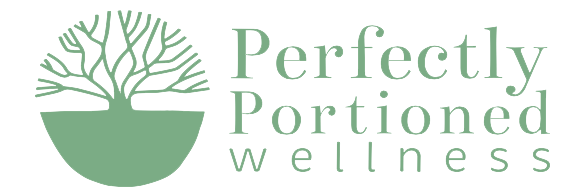PCOS and endometriosis are reproductive issues, but they differ in cause and symptoms. PCOS is linked to hormonal imbalances and causes irregular periods, excess androgen symptoms, and weight gain. PCOS has spectrum of symptoms and is a metabolic issue. Instead of focusing on all categories, we focus on optimizing our metabolic health.
Endometriosis is an immune condition that affects the gut and hormones. Endometriosis is caused by tissue growing outside the uterus, leading to painful periods and pelvic pain.
While both can affect fertility, they’re treated differently (medication, surgery, or lifestyle changes). You can have both conditions, though it’s uncommon.
At PPW, we specialize in education, treatment and empowerment on your PCOS and endometriosis journey.
What are the differences between PCOS and endometriosis?
PCOS and endometriosis are reproductive issues, but they differ in cause and symptoms. PCOS is linked to hormonal imbalances and causes irregular periods, excess androgen symptoms, and weight gain. PCOS has spectrum of symptoms and is a metabolic issue. Instead of focusing on all categories, we focus on optimizing our metabolic health.
Endometriosis is an immune condition that affects the gut and hormones. Endometriosis is caused by tissue growing outside the uterus, leading to painful periods and pelvic pain.
While both can affect fertility, they’re treated differently (medication, surgery, or lifestyle changes). You can have both conditions, though it’s uncommon.
What is PCOS belly and how can it be managed?
The exact reason for PCOS belly isn’t fully understood, but it’s likely linked to hormonal imbalances, particularly insulin resistance. When your body struggles to use insulin effectively, it can lead to excess fat storage, especially around the abdomen. A healthy diet that helps regulate blood sugar and manage insulin resistance is key. This means prioritizing fruits, vegetables, whole grains, and lean protein while limiting processed foods, sugary drinks, and unhealthy fats.
How does inositol help with PCOS symptoms?
Many women with PCOS have insulin resistance, where the body struggles to use insulin effectively. Inositol appears to improve cellular sensitivity to insulin, which can help regulate blood sugar levels and potentially reduce weight gain, a common PCOS concern. PCOS is also associated with hormonal imbalances, including elevated androgens. Inositol may help regulate these imbalances by affecting how ovaries use androgens. This can lead to improved menstrual regularity and ovulation
What is the best age to get pregnant with PCOS?
There’s no one-size-fits-all answer. The best age to get pregnant with PCOS depends on your individual circumstances. By talking to your doctor, creating a personalized plan, and potentially starting your pregnancy journey earlier if possible, you can increase your chances of a healthy outcome.
What is adrenal PCOS and how is it treated?
Adrenal PCOS, also sometimes called non-classical PCOS, is a subtype of PCOS where the adrenal glands, rather than the ovaries, are the primary source of excess androgen production. Androgens are hormones that are present in both men and women, but in higher levels in men. In women with PCOS, these elevated androgen levels can disrupt ovulation and menstruation, leading to a variety of symptoms.
What is lean PCOS and how is it different from other types?
Lean PCOS affects individuals with a normal weight, unlike typical PCOS which often involves weight gain. Both involve hormonal imbalances leading to similar symptoms like irregular periods and excess hair growth. Diagnosing lean PCOS can be trickier due to the lack of weight gain. Treatment focuses on managing hormone imbalances and symptoms, often through lifestyle changes and medication.
What are the different types of PCOS?
PCOS can manifest differently. Here are 4 main types:
- Insulin-Resistant PCOS: Most common, linked to weight gain and insulin resistance.
- Inflammatory PCOS: Chronic inflammation, fatigue, joint pain, normal weight possible.
- Lean PCOS: Normal weight, irregular periods, excess androgen symptoms.
- Hidden-Cause PCOS: Underlying conditions mimic PCOS symptoms (e.g., thyroid issues).
There’s also Adrenal PCOS (androgen production in adrenal glands) and Pill-induced PCOS (temporary symptoms after stopping birth control). Remember, these are categories and a woman can have symptoms from more than one type. Consulting a doctor for diagnosis and a treatment plan is crucial.
Again, we like to focus on improving your metabolic flexibility by reducing insulin resistance and foundational health. At PPW, we specialize in education, treatment and empowerment on your PCOS and endometriosis journey.
What are the differences between adenomyosis and endometriosis?
Adenomyosis and endometriosis involve endometrial tissue growing outside the uterus, but in different locations and with distinct effects. Adenomyosis causes heavy, painful periods and grows inside the uterine wall. Endometriosis grows outside the uterus on organs like ovaries and causes a wider range of symptoms like pain during ovulation, intercourse, or bowel movements. Both can affect fertility, with endometriosis having a more significant impact. Diagnosis and treatment differ for each condition.
What does stage 4 endometriosis mean?
Stage 4 endometriosis is the most severe form of this chronic condition. It’s characterized by the presence of extensive endometrial implants and adhesions (scar tissue) throughout the pelvic region. Stage 4 often involves deeper implants that can affect areas beyond the reproductive organs, like the bladder, bowel, and rectum. This can lead to significant pain during urination, bowel movements, and sexual intercourse.
How can I manage “endo belly”?
Endometriosis belly, or bloating caused by endometriosis, can be uncomfortable. Here’s how to manage it:
- Nutrition
- Mineral support
- Immune support
- Gut health
We recommend a multi-pronged strategy and also working with a pelvic floor therapist.
What does endometriosis feel like?
Endometriosis pain varies greatly, but common symptoms include:
- Pelvic pain: Cramping, burning, aching, often worse during your period.
- Pain during certain activities: Sex, bowel movements, urination can be painful.
- Other symptoms: Fatigue, bloating, irregular periods, infertility.
The location of pain depends on where implants are. It can be felt in the lower abdomen, back, thighs, or groin.
What diet is recommended for managing endometriosis?
- While at PPW, we do not recommend restrictive diets, many of our clients have vast improvement with their symptoms when they remove gluten from their diet.
- Improve gut health by supporting healthy digestion and supporting your keystone bacteria
- Prioritize Vitamin A and copper rich foods to help with mineral support
At PPW, we specialize in education, treatment and empowerment on your PCOS and endometriosis journey.
What happens if endometriosis persists after a hysterectomy?
Endometriosis can recur after a hysterectomy, though it’s less common. This can happen if microscopic implants weren’t removed during surgery or if the ovaries were left intact. Symptoms are similar to those before surgery and include pelvic pain, pain during sex or bowel movements, and fatigue.
Management involves hormonal therapy, possibly additional surgery to remove implants, and pain management techniques. Consult your doctor if you experience recurrence for a personalized plan.
How can I manage endometriosis flare-ups?
Endometriosis flare-ups can be tough, but there are ways to manage them:
- Rest & Relaxation: Prioritize sleep, take breaks, explore stress-reducing techniques.
- Pain Management: Over-the-counter meds, heat therapy, warm baths can provide relief.
- Dietary Changes: Gut health focused
- Mineral support by improving your iron recycling system
- Reduce overall inflammation
- Work with a qualified endometriosis doctor
- Work with a pelvic floor therapist
- Monitor your cycle, communicate flare-up severity for a personalized plan.
Remember, don’t ignore chronic pain. Seek medical attention if flare-ups are severe or persistent.
At PPW, we start with your foundations, minerals and targeted supplements. Bringing in the right mindset that you can heal and deep nervous system support are essential to your healing. Apply for our 1:1 services here, so we can help you gain clarity on your next steps and get you closer to healing. We have helped hundreds of women with PCOS and endometriosis thrive and feel like themselves again. You have a big life to live and we want to help get you there!


